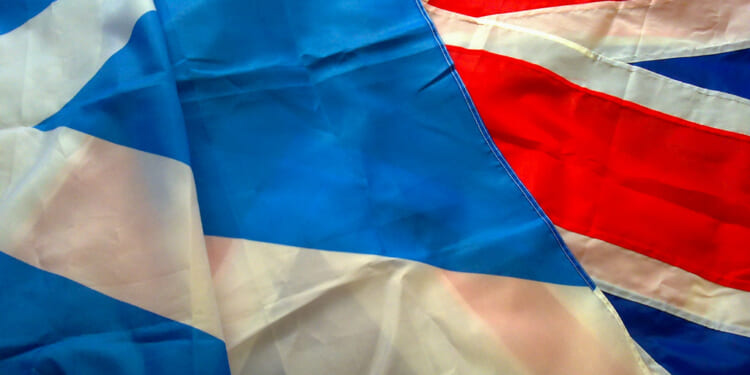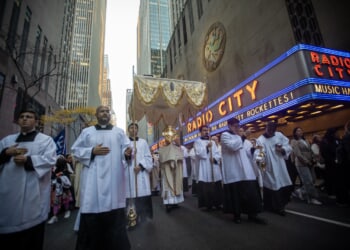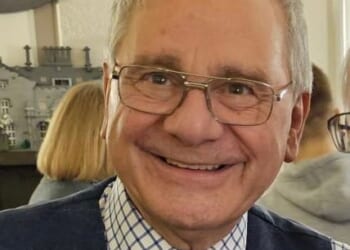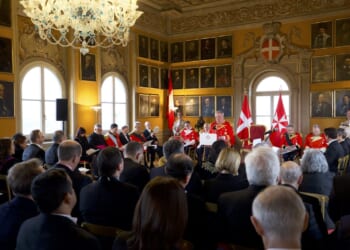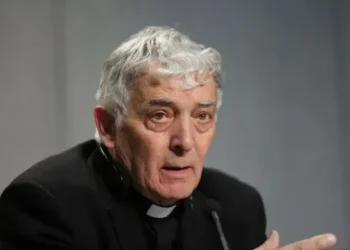Andrew Bowie is shadow Secretary of State for Scotland and MP for West Aberdeenshire and Kincardine.
“Scottish identity is increasingly decoupling from British identity…the part of the population which identifies as British has collapsed.” These are the words of Mark McGeoghegan, a political researcher at the University of Glasgow in the Sunday Times last week, regarding the respected Social Attitudes Survey report that the proportion of Scots who identify as British – even in part – has collapsed to 25%.
This news is deeply sad.
I am one of the seemingly diminishing numbers of people who identify, proudly, as British and Scottish say sad and I say proud, because it is and I am. To be British as well as Scottish is, I believe, something that should be cherished. Our freedoms, our shared culture, our institutions, our history.
But the data presented in the survey should not be a surprise. Over the 26 years since the creation of the Scottish Parliament, a deliberate policy decision of subsequent Governments has been the dilution of our shared cultural bonds, the erosion of the idea that we are one country. They have actively changed even the very language we use to describe who we are. Why should anyone feel “British” when even those in power recoil from using the term to describe our fellow citizens, ourselves… our Olympic team.
Team GB. The UK Government. The Four Nation Approach.
Why would people identify with something of which we do not speak? Indeed, the only national institutions I can think of that retain the term ‘British’ in their title are the BBC, British Airways and the British Army – and, in Scotland, even the Army’s twitter handle is @ArmyScotland. No-one under the age of 30 remembers ‘British Rail’; most have no clue what ‘BT’ or “BP” stand for other than just the name of another Broadband provider or petrol station.
The unifying moments in national life are fast fading; a General Election results evening, for example, presented as a wholly distinct plebiscite with an entirely separate results programme on the BBC for people north of the border.
Compare this to the Nationalist approach. They understand the power of language, identity and shared belonging and ownership. Hence why the Scottish Government insists on calling itself just that. Why it drapes the Saltire around everything it does.
They also deploy symbolism and language to great affect around the question of Scottish membership of the EU.
They don’t say ‘Scotland Loves the EU’, they say ‘Scotland Loves Europe’. The don’t say ‘Scotland is a future Member of the European Union’ it says, ‘Scotland is European’.
The reality is though, there need not be a choice. Being British has never relied upon the rejection of being Scottish, English, Welsh, or Northern Irish. These identities are entirely complementary. Not contradictory.
To be British is to be part of something larger: a shared civic and cultural inheritance built across these islands together. Whether you find yourself in Dundee or Doncaster you will realise that those shared values are to be discovered at every turn.
From the Scottish Enlightenment thinkers who shaped British democracy, to the engineers and writers who helped forge its industrial and cultural strength, Scots have never been passengers in the British story, but always at the wheel.
Our institutions reflect that shared spirit of fairness, innovation, and resilience that draws as much from Scotland’s character as from anywhere else. The Union, at its best, is not a denial of national identity but a partnership that allows each nation to contribute its own unique character to something greater.
In truth, the decline in British identity in Scotland may say less about the worth of Britishness itself and more about how it has been articulated and defended in recent years and the impact of the devolve and forget mentality of successive British Governments- particularly this one. That must end and will end with a Conservative Government unafraid to act in the British interest, unafraid to act for all British people.
Britishness is a lived identity one that finds expression in our common institutions, our shared culture, and our instinct to look outwards as part of a diverse but united people.
Institutions that only we Conservatives are proud of. A culture that only we Conservatives will defend.

